R.U.S.E.
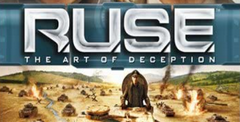
| a game by | Eugen Systems |
| Platforms: | XBox 360, PC (2010), Playstation 3 |
| Editor Rating: | 8/10, based on 1 review, 3 reviews are shown |
| User Rating: | 8.9/10 - 7 votes |
| Rate this game: | |
| See also: | Best RTS Games, Military Games, WW2 Games, Games Like Red Alert |
A real-time strategy game where combat takes second place, R.U.S.E. features a complex approach to confrontation, one that involves deception and lies to turn the tides of combat. Set in World War II, this precise strategy game will make you ponder not only each of your moves but also how to counter your enemies in the most efficient way.
Patience is a virtue in games like R.U.S.E., and those players looking for a fast-paced combat simulator might feel let down by this game’s carefully planned encounters. That said, if you have the time to plot your tactics carefully, and enjoy diplomacy tactics as much as bombastic battles, then R.U.S.E. might be the game you were looking for.
Take It Slow
The game begins with a flashback to 1943 when then major Joseph Sheridan was battling in the Allied North African campaign. After a disastrous defeat, Sheridan works with British intelligence officer Colonel Andrew Campbell and together, through the use of espionage and sabotage, manage to turn the tide of battle.
The campaign mode only features the United States as a playable faction, contrary to games like Command & Conquer: Red Alert 3, where players have different campaigns for each faction. This makes the game’s campaign feel a bit barebones, especially because other factions do appear throughout the campaign.
The first few hours of R.U.S.E.’s campaign can put players’ patience to the test: long tutorials and exposition turn the beginning of the game into the weakest part of the campaign. However, if you’re still awake by the end of the first chapters, the game will reward you with a perfectly adequate campaign.
Ruses, Factions, and Operations
Like many other RTS games, each faction comes with a unique gameplay style. Most of the real-life factions of World War II appear in R.U.S.E., like the Soviet Union, the United States, and Nazi Germany.
As we mentioned before, the campaign mode will let you control only the United States. That’s not the case with multiplayer mode, however, letting players experiment with however faction they feel the most comfortable with.
Unlike games like Age of Empires, where combat is the only way to engage the enemy, Ruses are a powerful tool to overcome military superior enemies. Using Ruses allows players to bluff against their opponents, fooling them about their own military power and other vital statistics.
These Ruses are divided into four different categories: there are some that hide info from the enemy, others that reveal information, those that alter a unit’s behavior, and lastly, there are those that allow players to create fake structures and units.
After you’re done with the campaign, your next stop should be the excellent Operations mode. Here, players can engage in multiple scenario missions that will put their abilities to the test. While most of these operations are based on real-life events, some of them are “what if” scenarios that will put you on the losing side, just to see if you’re able to defeat the odds.
The slow approach to combat seen in R.U.S.E. is ideal for fans of grand strategy games but might prove a bit too tepid for those looking for a more action-heavy title. The lack of multiple factions in the main campaign is a major letdown, but the enjoyable multiplayer helps to overcome this annoying limitation.
Pros:
- Nicely detailed graphics
- Intuitive UI
- Interesting campaign and side scenarios
Cons:
- Slow-paced campaign
- Some minor balance issues
Download R.U.S.E.

System requirements:
- PC compatible
- Operating systems: Windows 10/Windows 8/Windows 7/2000/Vista/WinXP

System requirements:
- PC compatible
- Operating systems: Windows 10/Windows 8/Windows 7/2000/Vista/WinXP

System requirements:
- PC compatible
- Operating systems: Windows 10/Windows 8/Windows 7/2000/Vista/WinXP
Game Reviews
Generals are shifty buggers. Hitler, for example, would often call up Churchill and claim to have sent 4,000 Maus tanks to Newcastle. Winston would hop on the train to go up and have a look, leaving Number 10 undefended. Such deception is a key element of war, as established by Sun Tzu in The Art of War - a book now read exclusively by advertising bumholes.
Why such a crucial tactic has been under-represented in RTS games is baffling, and R.U.S.E's titular feints are what sets it apart in the staid World War II strategy genre. That and its unique presentation. It's laid out in front of you as a tabletop board game, to the extent that you can see the edges of the table and the slick, glossy chips used to represent units. Zoom in and the chips fade into animated troops and armour, and scale to their surroundings. The ceiling becomes a sky, and the game becomes reality.
Build bases, position anti-air turrets in forests, plant some airfields and factories and start pumping out your offensive and defensive forces. The idea is to control different regions, and your z ruses, the tools of your deception, act ' on these provinces. The radio silence ruse conceals the movements of every unit in that area, the camouflage net conceals buildings, Blitz doubles unit movement speeds.
Liar, Liar
Known enemy locations (radar does most of this, while air and ground units can scout ahead) are marked with red silhouettes. But both armies can fake advances - your foe might send some red silhouetted tanks to your eastern front, causing you to move your own forces to defend. On your arrival the enemy forces will vanish, having never existed. Meanwhile, the actual armoured brigade will begin to appear on your now undefended western border. That's a textbook ruse right there.
Deception is the idea then, and R.U.S.E. deceives even further by appearing mildly more complex than it is. These are straightforward units, and the game abides by straightforward rules. R.U.S.E. is even, put down your tea for this, playable on a gamepad. R.U.S.E, is less about fiddly micromanagement and more about selecting, pointing and moving. Which is fine by us, as it means we might actually stand a chance when we take the game online. Or perhaps we're only deceiving ourselves.
So It Turns out that RUSE is going to be a bit interesting. It's a zoom-in-and-out strategy offering which scales from actual size, down-to-earth perspectives, up through the clouds, before revealing that the battle is taking place on a tabletop map, replete with military types on the phone in the background. It's like Supreme Commander and World in Conflict crossed with the model town from Beetlejuice.
RUSE. last showed itself in Cologne, way back in 2009, where it boastfully introduced the concept of deception to the RTS genre. Deception, claim the French developer Eugen Systems, hasn't been properly realised yet and so R.U.S.E. introduces the titular a collection of jukes, fakes, dummies and rumours intended to confound and confuse your opponent. Back then, Ubisoft would usher you out of their booth before you could properly run your face down the list of ruses, but now, in this decade of new opportunities, we can do whatever the hell we like with RUSE, perusing the salvo of lies and deceit as we please.
They're not terrifically interesting on paper, truth be told. Decryption reveals your opponent's orders as he makes them, so that his movements are flagged by large, colourful arrows. Spy identifies units, turning an unidentified unit's tiddlywink into an actual, visible object, thereby allowing you to attack it. Fanaticism removes your units' ability to retreat, making it possible to draw out conflicts long enough to pursue other targets. And Decoy Army produces five dummy units, which appear to your opponent to be as real as everything else until he attacks them and they disappear in mocking wisps. These aren't sexy, game-ending tricks, rather they're appropriately subtle tools - and those are just four of the 10 we've seen.
Games begin with you in control of an HQ, and dotted about the map are supply dumps. Building depots on these will generate revenue and force you to extend your fronts, from here you'll need to build defensive structures - machine gun nests and fixed anti-air cannons -while closer to your base you'll be setting up barracks and tank factories to feed your frontline with fresh units.
R.U.S.E. benefits from brevity in its roster of units, there are only a handful to choose from, and as such they fall neatly into a rock-paper-scissors arrangement. It is, in the very best sense, simple.
There are a few problems that might cause less-able players to slouch right into a petulant furrow of despair though. Units, like or unlike, are lumped together depending on how much you've zoomed in or out. At a distance, entire armies can be represented by neatly stacked tiddlywinks, with individual units only becoming visible once you've craned your virtual neck for a closer look. Scouting is fussy too, so while specific jeeps and aerial units can be used to reveal enemy units, often the very units being fired upon won't be able to identify what sort of tank is pounding them into oblivion. There's no "Just have a bloody look, will you?" order to speak of. These are stumbling blocks, certainly, but R.U.S.E's potential is being displayed in force. The short tight one-on-one games speak of a title stripped of the haughtiness of the genre incumbents, a complex but not complicated RTS which seemingly benefits from its crossplatform development.
Strategy Simplified
R.U.S.E. is literally a game you can play with one hand tied behind your back, and while that could potentially feel shallow to nimble-fingered strategy fanatics, it'll more likely be welcomed with open arms by armchair tacticians who tremble at the sight of a nested menu. Particularly those tacticians without the use of their left hands.
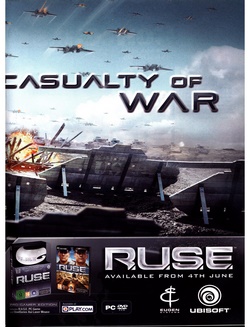

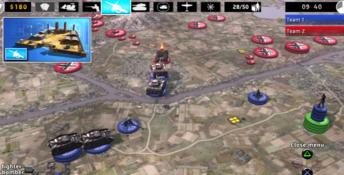
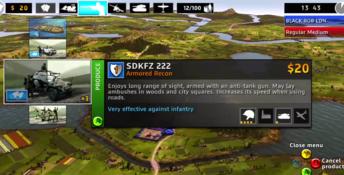
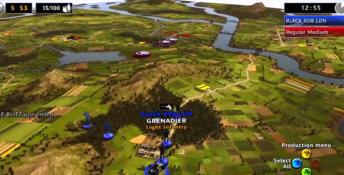
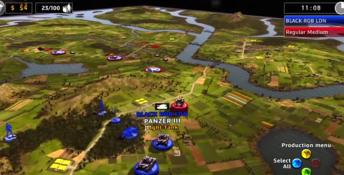
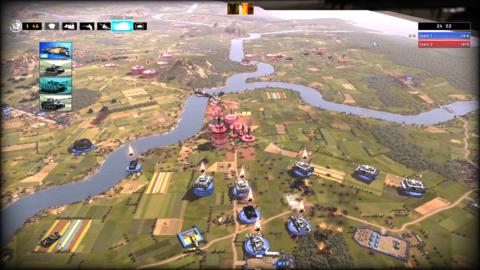


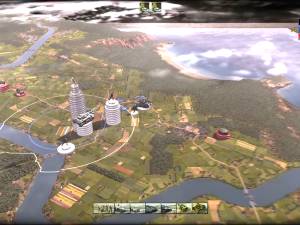
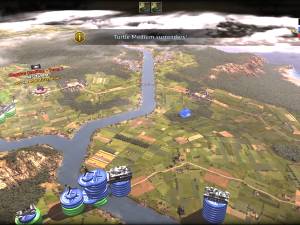
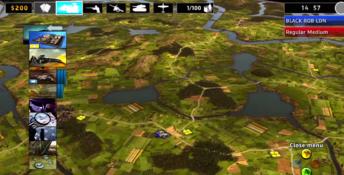
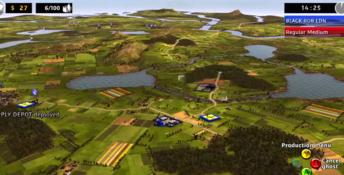

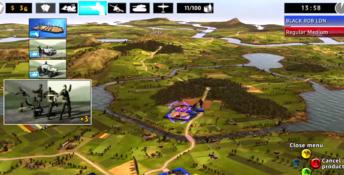
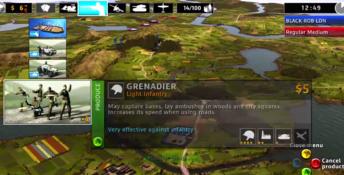
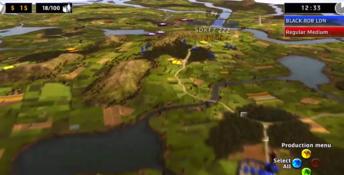
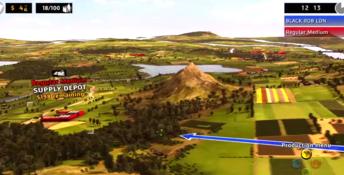
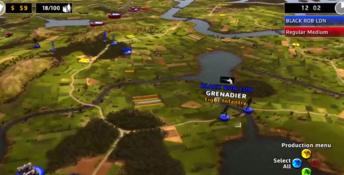
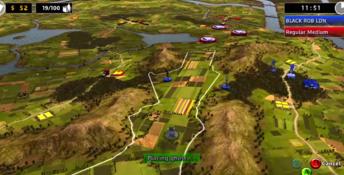
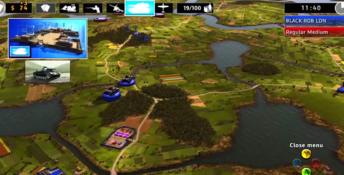

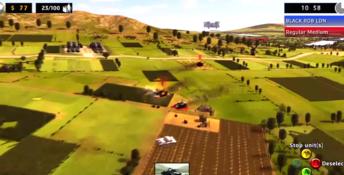
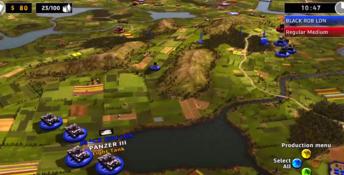
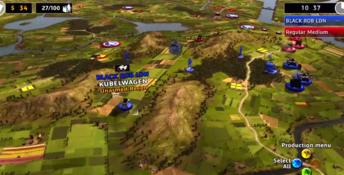
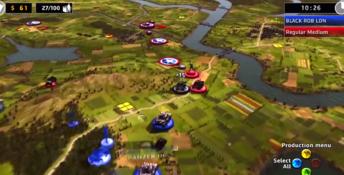



















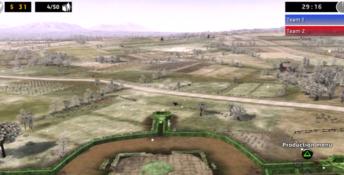











 UFO: Aftermath
UFO: Aftermath
 Sacraboar
Sacraboar
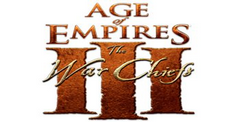 Age of Empires 3: The WarChiefs
Age of Empires 3: The WarChiefs Beasts and Bumpkins
Beasts and Bumpkins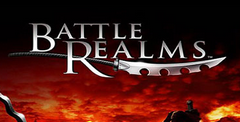 Battle Realms
Battle Realms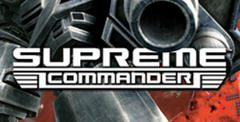 Supreme Commander
Supreme Commander
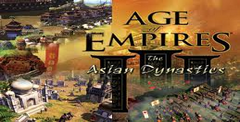 Age of Empires 3: The Asian Dynasties
Age of Empires 3: The Asian Dynasties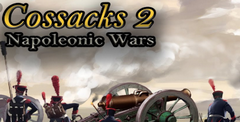 Cossacks 2: Napoleonic Wars
Cossacks 2: Napoleonic Wars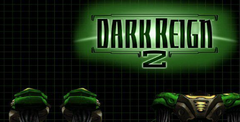 Dark Reign 2
Dark Reign 2 Warrior Kings
Warrior Kings
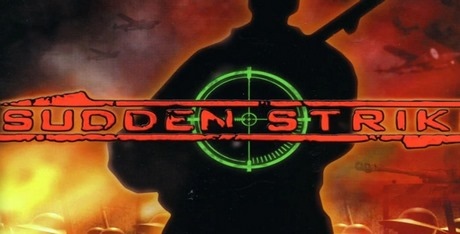 Sudden Strike
Sudden Strike
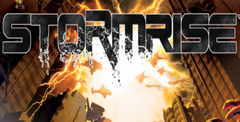 Stormrise
Stormrise